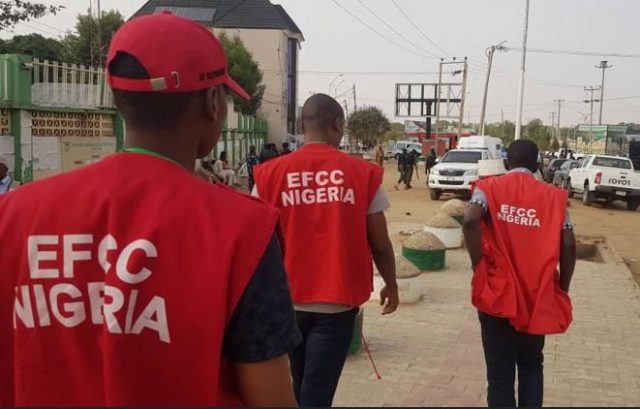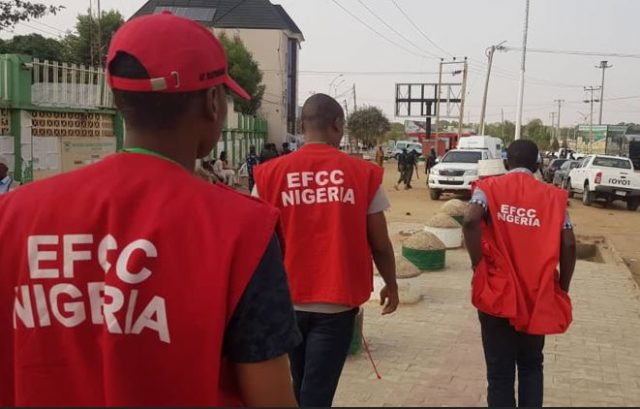By Timothy Samuel

Information has come to light regarding the reasons behind the Supreme Court lawsuit filed by no fewer than sixteen state governments contesting the validity of the legislation establishing the Nigerian Financial Intelligence Unit and the Economic and Financial Crimes Commission. The Kogi State Government, acting through Attorney General Muiz Abdullahi SAN, initially filed the suit, which is designated SC/CV/178/2023. Nevertheless, on Tuesday, fifteen more states became co-plaintiffs. The states are: Niger, Plateau, Cross River, Edo, Oyo, Ogun, Nassarawa, Kebbi, Katsina, Sokoto, Jigawa, Enugu, Benue, Anambra, and Edo.
The states argued that the agencies’ creation violated certain constitutional clauses. They contended that although the EFCC Act needed the support of the Houses of Assembly in the majority of the states under the constitution, this did not happen prior to the agency’s establishment.Following the arguments, a seven-judge panel of the supreme court, presided over by Justice Uwani Abba-Aji, scheduled a hearing for October 22 and gave permission for the case to be consolidated on Tuesday. But Saturday PUNCH discovered that the lawsuit might not be unrelated to the lengthy legal dispute between the anti-graft agency and Yahaya Bello, the former governor of Kogi State, regarding claims of N110 billion in financial misappropriation. The N772 billion money laundering cases against 13 additional former governors and ministers have been reopened by the EFCC.

The EFCC reopened the cases in January 2024, including the $2 point 2 billion diverted case involving two former governors of Ekiti State, Kayode Fayemi and Ayo Fayose; current Minister Bello Matawalle, a former governor of Zamfara State; two former governors of Enugu State, Sullivan Chime and Chimaroke Nnamani; former governor of Nasarawa State, Abdullahi Adamu; and former governors of Kano State, Rabiu Kwankwaso and Chimaroke Nnamani.
Other former governors are Peter Odili of Rivers State, Theodore Orji of Abia State, Danjuma Goje of Gombe State, Aliyu Wamako of Sokoto State, Timipre Sylva of Bayelsa State, and Sule Lamido of Jigawa State. The EFCC’s Head of Media and Publicity, Dele Oyewale, told our correspondent on Friday that the legal actions taken against the commission demonstrated the agency’s efficacy in combating corruption. “In actuality, the actions are coming based on what the commission is doing,” he stated. A coordinated hostile environment such as the one the commission is facing would not exist if we were not carrying out our duties and taking the required action against corrupt practices. This, in my opinion, is an evaluation of the efficacy of the commission’s work”Whatever they are doing, it cannot continue in any way. Indeed, the court is the only body with the authority to make a decision on the matter at hand. “
We have not decided as a state whether to abolish the EFCC, stated Musa Ashoms, the state’s commissioner of information. It is a creation of law, and we believe the law should be allowed to take its course on any matter in the country.














